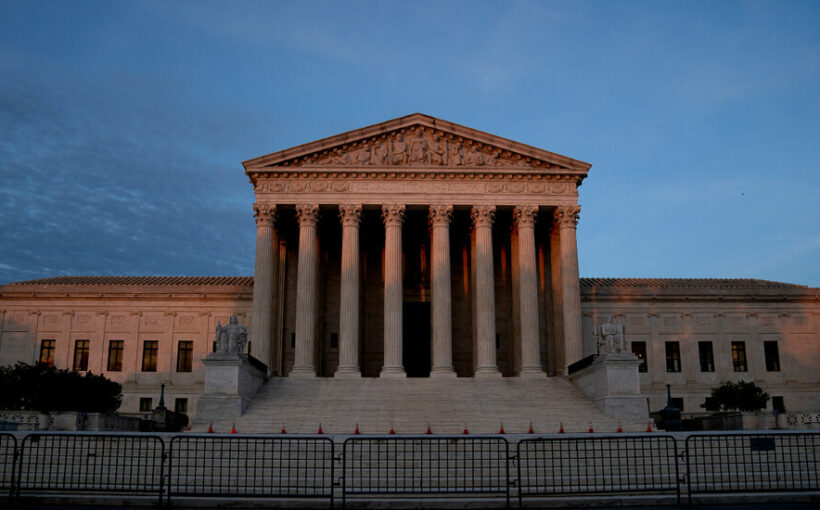The Supreme Court ordered an appeals court to take another look at a ruling in favor of police officers accused of using excessive force in pressing on the back of a man who was facedown on the ground, suffocating him.
The case started when police officers in St. Louis arrested Nicholas Gilbert, a 27-year-old homeless man, for trespassing in a condemned building and failing to appear in court for a traffic ticket. They brought him to a holding cell in a police station. Later, responding to an apparent suicide attempt, officers handcuffed and shackled Mr. Gilbert.
“Three officers held Gilbert’s limbs down at the shoulders, biceps and legs,” the Supreme Court’s unsigned opinion said. “At least one other placed pressure on Gilbert’s back and torso. Gilbert tried to raise his chest, saying, ‘It hurts. Stop.’”
After 15 minutes of struggling, Mr. Gilbert’s breathing became abnormal. “The officers rolled Gilbert onto his side and then his back to check for a pulse,” the opinion said. “Finding none, they performed chest compressions and rescue breathing. An ambulance eventually transported Gilbert to the hospital, where he was pronounced dead.”
Mr. Gilbert’s parents sued, losing in the federal appeals court in St. Louis, which ruled that the officers had not used unconstitutionally excessive force.
The Supreme Court said the appeals court may not have taken account of all of the relevant evidence.
“It is unclear whether the court thought the use of a prone restraint — no matter the kind, intensity, duration or surrounding circumstances — is per se constitutional so long as an individual appears to resist officers’ efforts to subdue him,” the Supreme Court’s opinion said, returning the case to the appeals court to give it “the opportunity to employ an inquiry that clearly attends to the facts and circumstances.”
In dissent, Justice Samuel A. Alito Jr., joined by Justices Clarence Thomas and Neil M. Gorsuch, said the Supreme Court had chosen the worst of the three available options. It should have, Justice Alito wrote, either denied review or agreed to hear and decide the case itself.
“The court, unfortunately, is unwilling to face up to the choice between denying the petition (and bearing the criticism that would inevitably elicit) and granting plenary review (and doing the work that would entail),” Justice Alito wrote.
Source: Read Full Article
